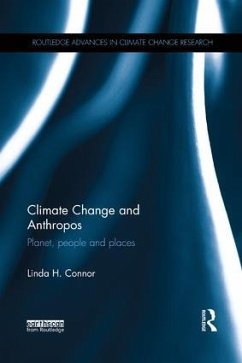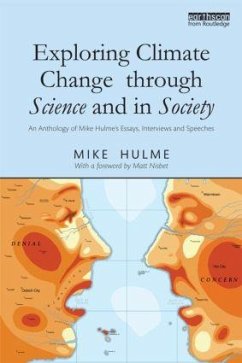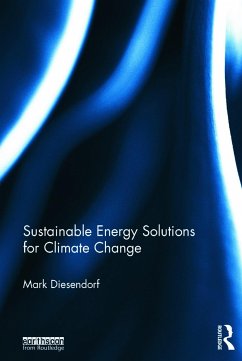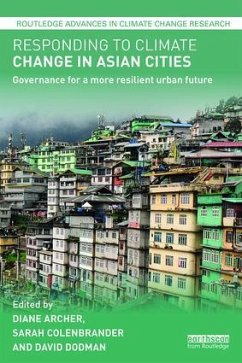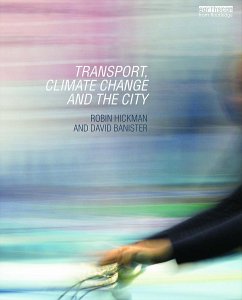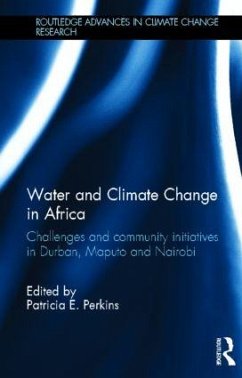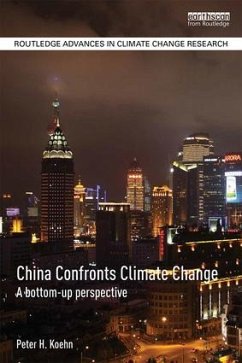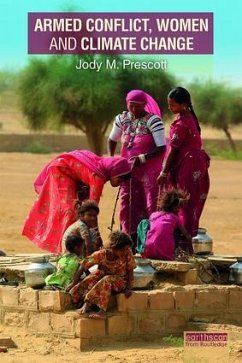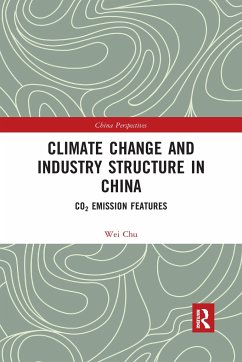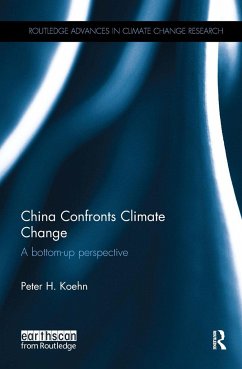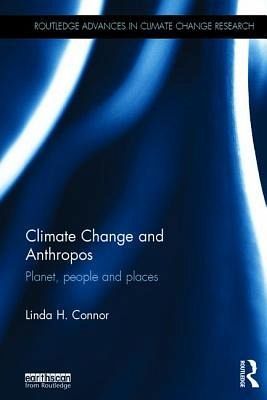
Climate Change and Anthropos
Planet, people and places
Versandkostenfrei!
Versandfertig in 1-2 Wochen
116,99 €
inkl. MwSt.
Weitere Ausgaben:

PAYBACK Punkte
58 °P sammeln!
Anthropos, in the sense of species as well as cultures and ethics, locates humans as part of much larger orders of existence - fundamental when thinking about climate change. This book offers a new way of thinking about the significance of locality and everyday life in relation to climate change. Many scholars now write about the ethics, policies and politics of climate change, focusing on global processes and effects. The book's innovative approach to cross-cultural comparison and a regionally based ethnographic study moves beyond the political assertions and expert understandings filtered by the mass media. Rather, it asks fundamental questions about the social impact and cultural meanings of global warming and its impact on diverse human worlds embedded in a changing biosphere. The regional focus of the book is the Asia Pacific - the engine room of global economic growth in the 21st century, the largest user of the planet's natural resources, and the fastest-growing source of greenhouse gas emissions. The book's core analysis - a case study of the Hunter Valley in Southeast Australia - highlights the details of a specific locale that is an integral part of the Asia Pacific economic nexus. The book traces connections and contests of communities, citizens and states in the region, shaped by circumstances such as rapid economic growth in East Asia, heavy dependence on fossil fuels, and high levels of exposure to climate change impacts in a region where six of the world's ten countries most at risk are located, notably in the low-lying Pacific Island countries. Through interdisciplinary methods of anthropology, psychology and cultural analysis, the book approaches the social and cultural dimensions of climate change holistically, linking the large time scales of human species and the planet with small places and global commodity chains, local activism and transnational politics, collective reason and cultural critique.
Anthropos, in the sense of species as well as cultures and ethics, locates humans as part of much larger orders of existence - fundamental when thinking about climate change. This book offers a new way of exploring the significance of locality and lives in the epoch of the Anthropocene, a time when humans confront the limits of our control over nature. Many scholars now write about the ethics, policies and politics of climate change, focussing on global processes and effects. The book's innovative approach to cross-cultural comparison and a regionally based study explores people's experiences of environmental change and the meaning of climate change for diverse human worlds in a changing biosphere. The main study site is the Hunter Valley in southeast Australia: an ecological region defined by the Hunter River catchment; a dwelling place for many generations of people; and a key location for transnational corporations focussed on the mining, burning and export of black coal. Abundant fossil fuel reserves tie Hunter people and places to the Asia Pacific - the engine room of global economic growth in the twenty-first century and the largest user of the planet's natural resources. The book analyses the nexus of place and perceptions, political economy and social organisation in situations where environmental changes are radically transforming collective worlds. Based on an anthropological approach informed by other ways of thinking about environment-people relationships, this book analyses the social and cultural dimensions of climate change holistically. Each chapter links the large scales of species and planet with small places, commodity chains, local actions, myths and values, as well as the mingled strands of dystopian imaginings and strivings for recuperative renewal in an era of transition.




